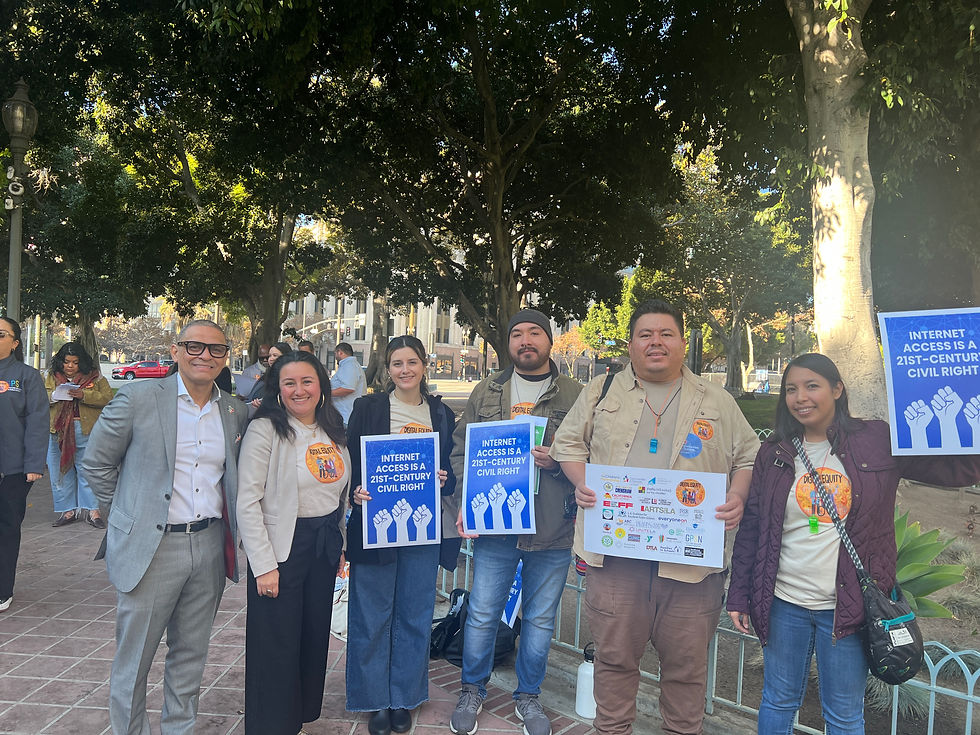On January 24, the LA City Council unanimously approved a groundbreaking motion introduced by Councilmember Marqueece Harris-Dawson, making Los Angeles the first city in the nation to end digital discrimination. The win comes after months of organizing alongside our partners in the Digital Equity LA (DELA) coalition, which is led by the California Community Foundation and GPSN, and comprised by numerous community groups.
The motion addresses the impacts of digital discrimination by advocating for fast, reliable, and affordable internet service in low-income communities throughout Los Angeles.
This policy will:
Define digital discrimination following the Federal Communications Commission’s (FCC) guidelines.
Establish a process for community to report complaints of digital discrimination to the city and elevate to the FCC.
Act by using the Bureau of Street Lighting to address broadband infrastructure and equity.

Digital discrimination, a harmful practice by Internet Service Providers like AT&T and Spectrum, involves charging higher prices for Internet access in low-income communities. It is a practice that drives the digital divide and disproportionately affects vulnerable groups such as low-income communities, people of color, immigrants, and seniors.
The California Community Foundation (CCF) along with the DELA coalition produced a report titled “Slower and More Expensive. This study revealed that residents in wealthier neighborhoods paid $54 per month for high-speed internet, while those in working-class neighborhoods were charged $70 for the same service.
Many CISLA students and their families reside in working-class communities, and historically, their voices have been absent from the policy-making tables.
This momentous achievement paves the way for proactive measures to identify, rectify, and prevent discrimination in critical internet access for CISLA students and their families.
We are proud to stand with our partners in the DELA coalition and LA City leaders in advocating to bridge the digital divide and ensure equitable access for our students and families.

It’s so important for everyone to have broadband access for full participation in modern society and no one should be charged more based on their neighborhood.
Thank you to our colleagues for their support and most of all the organizers in the Digital Equity Coalition.
This is a big win and we’ll keep pushing equity on all fronts forward!
Read the LAist article featuring Executive Director Elmer G. Roldan for further insights into this effort.

Comments